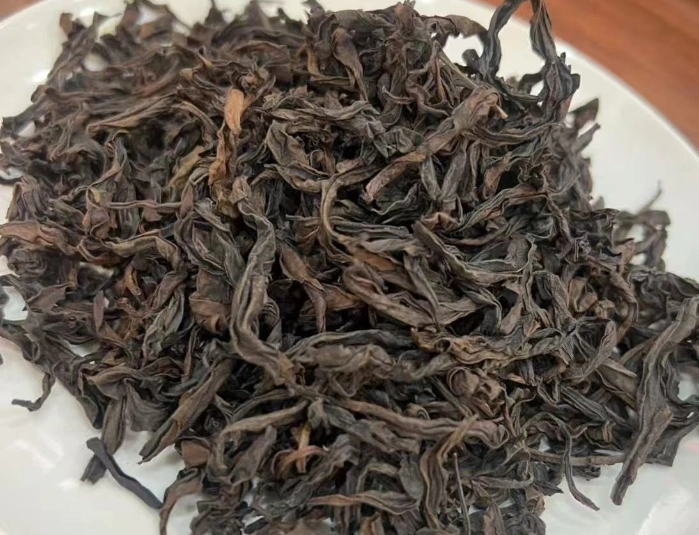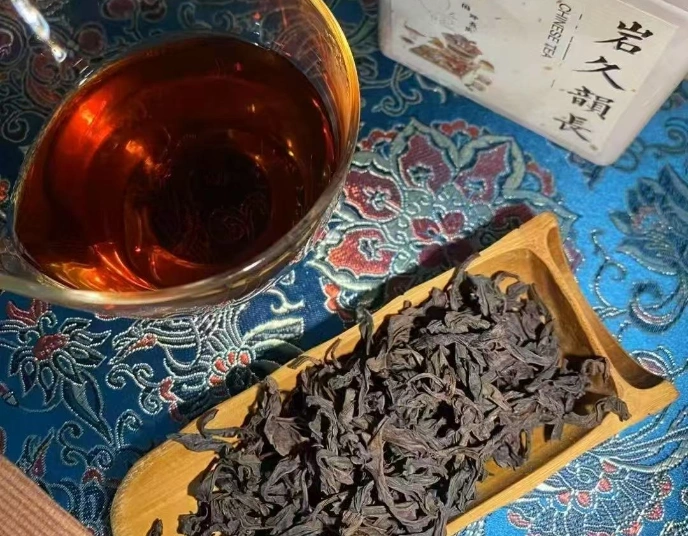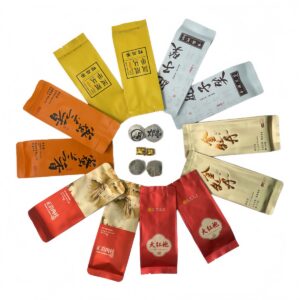Oolong tea for gut health is more than just a comforting ritual—it’s a pathway to digestive harmony, radiant energy, and overall well-being. Imagine cradling a warm cup of jade-green infusion, its fragrant steam swirling with floral and lightly roasted notes. With every silky sip, you feel your stomach settle, tension dissolve, and gut microbiome spring to life.
In this guide, we’ll explore how oolong tea for gut health supports digestion, aids evening detox, and even contributes to weight management and immune resilience. Get ready to awaken your senses and restore balance from the inside out.
Why Gut Health Is Fundamental to Wellness
Your gut is the epicenter of your health—up to 70% of your immune system resides there, and a balanced microbiome underpins everything from mood to metabolism. When your digestion falters, you may feel bloated, sluggish, or mentally foggy. Turning to oolong tea for gut health introduces natural compounds that harmonize microbial communities, soothe inflamed tissue, and foster efficient nutrient absorption. By nurturing your gut, you unlock a cascade of vitality that radiates throughout your body.

What Is Oolong Tea? Origins and Key Characteristics
Oolong tea occupies the elegant middle ground between green and black tea. Originating in China’s mist-cloaked Fujian mountains, its leaves undergo partial oxidation— anywhere from 10% to 70%—yielding a spectrum of aromas:
- Light oolongs: Fresh, floral, and bright, with delicate notes of orchid.
- Medium oolongs: Balanced profiles, hinting at stone fruit and honey.
- Dark oolongs: Deeply roasted, smoky, and richly toasty.
This nuanced crafting not only excites the palate but also influences the gut-soothing benefits that make oolong tea for gut health so coveted.
How Oolong Tea Supports Digestion
Oolong Tea for Evening Digestion
A restful night begins with a calm stomach. Oolong tea for evening digestion gently warms your belly and encourages smooth muscle contractions, helping food pass comfortably through your intestines. Sip a lightly oxidized oolong after dinner to dispel post-meal heaviness and prepare your body for restorative sleep.
Enzyme Modulation & Gut Motility
Oolong tea contains bioactive polyphenols that modulate digestive enzymes—slowing carbohydrate breakdown to prevent gas and spikes, while encouraging bile flow to emulsify fats. This dual action enhances oolong tea for gut health by promoting steady nutrient absorption and reducing bloating.
Bioactive Compounds in Oolong Tea for Gut Health
Key molecules in oolong tea for gut health include:
- Polyphenols: Anti-inflammatory agents that soothe gut lining.
- Theaflavins & Thearubigins: Oxidation products that feed beneficial bacteria.
- Catechins: Antioxidants that support mucosal integrity.
- L-theanine: A calming amino acid that relaxes visceral tension.
Together, these compounds create a nurturing environment for your microbiome to flourish.

Oolong Tea for Weight Loss: Synergy with Gut Wellness
Gut health and metabolism go hand in hand. By supporting beneficial bacteria, oolong tea weight loss effects emerge: improved fat oxidation, reduced sugar cravings, and a balanced appetite. Studies suggest regular oolong consumption can boost basal metabolic rate—making oolong tea for gut health an ally not only for digestion but also for gentle weight management.
Oolong Tea for Immune System: A Protective Ally
Up to 80% of immune cells reside in the gut. When you drink oolong tea for immune system support, you deliver polyphenols that reinforce gut barrier function and temper inflammatory cascades. A resilient microbiome means fewer leaks of endotoxins into your bloodstream and a stronger frontline defense against seasonal bugs.
Best Brewing Practices for Maximum Gut Benefits
To extract the full nurturing power of oolong tea for gut health, follow these steps:
- Water Temperature: Use 90–95 °C water to preserve delicate polyphenols.
- Leaf-to-Water Ratio: 5 g of loose leaf per 150 ml water strikes the perfect balance.
- Rinse Leaves: A quick 5-second rinse wakes the tea and removes dust.
- Steeping Time:
- First Steep: 1 minute for a gentle infusion
- Subsequent Steeps: +15 seconds each, up to 5 rounds
- Mindful Sipping: Inhale the floral aroma, sip slowly, and pause to feel the digestive warmth bloom.
For an evening twist, try cold brewing: steep 5 g leaves in 500 ml cold water overnight for a smooth, gut-friendly tonic.

🔗 To learn more about how to make tea, check out Tanbiwencha’s YouTube video explaining how to make tea
Top Oolong Varieties to Enhance Gut Health
- Tie Guan Yin (Iron Goddess): Medium oxidation with orchid aromas—ideal for nightly digestion.
- Dong Ding (Frozen Summit): Roasted backbone aids bile flow and fat breakdown.
- Baozhong: Light, floral, and high in catechins—perfect for morning gut reset.
- Oriental Beauty: Rich honey notes and high polyphenol content support microbial balance.
Rotate among varietals to enjoy a symphony of flavors and health benefits.
Daily Ritual: Integrating Oolong Tea into Your Routine
- Morning Boost: Start with Baozhong to gently kickstart digestion and set a vibrant tone.
- Afternoon Pause: Savor Tie Guan Yin for a stress-releasing, gut-soothing break.
- Evening Wind-Down: End the day with cold-brewed Dong Ding to promote smooth overnight detox.
Pair tea rituals with fiber-rich snacks—berries, yogurt, or nuts—to further nurture your microbiome.
Common Mistakes to Avoid When Drinking Oolong Tea
- Using Boiling Water: Destroys delicate gut-beneficial polyphenols—aim below 90 °C.
- Oversteeping: Leads to bitterness and can irritate your stomach.
- Low-Quality Leaves: Dust and fannings lack active compounds—choose whole-leaf loose tea.
- Excess Consumption: More than 4 cups per day may disrupt sleep or cause mild caffeine jitters.
Stick to mindful portions to ensure oolong tea for gut health remains a gentle healer.
Conclusion & First-Sip Recommendations
Embracing oolong tea for gut health is an invitation to savor life’s simple pleasures while fortifying your inner ecosystem. Begin your journey with a morning cup of Baozhong, transition to Tie Guan Yin after lunch, and indulge in a cold brew of Dong Ding as evening digestion aid. Over time, you’ll feel lighter, more energized, and in tune with your digestive rhythms. Raise your cup to a thriving gut—cheers to wellness in every aromatic sip!



